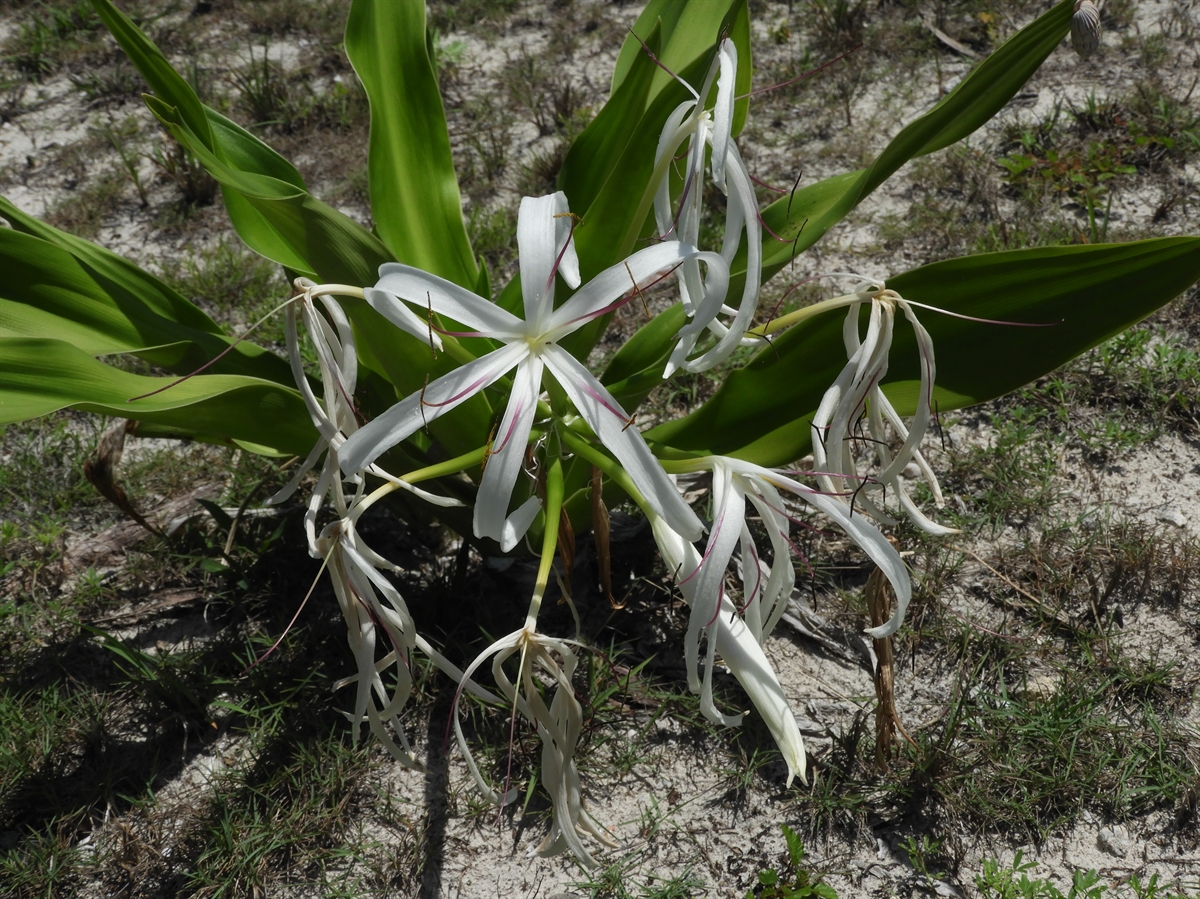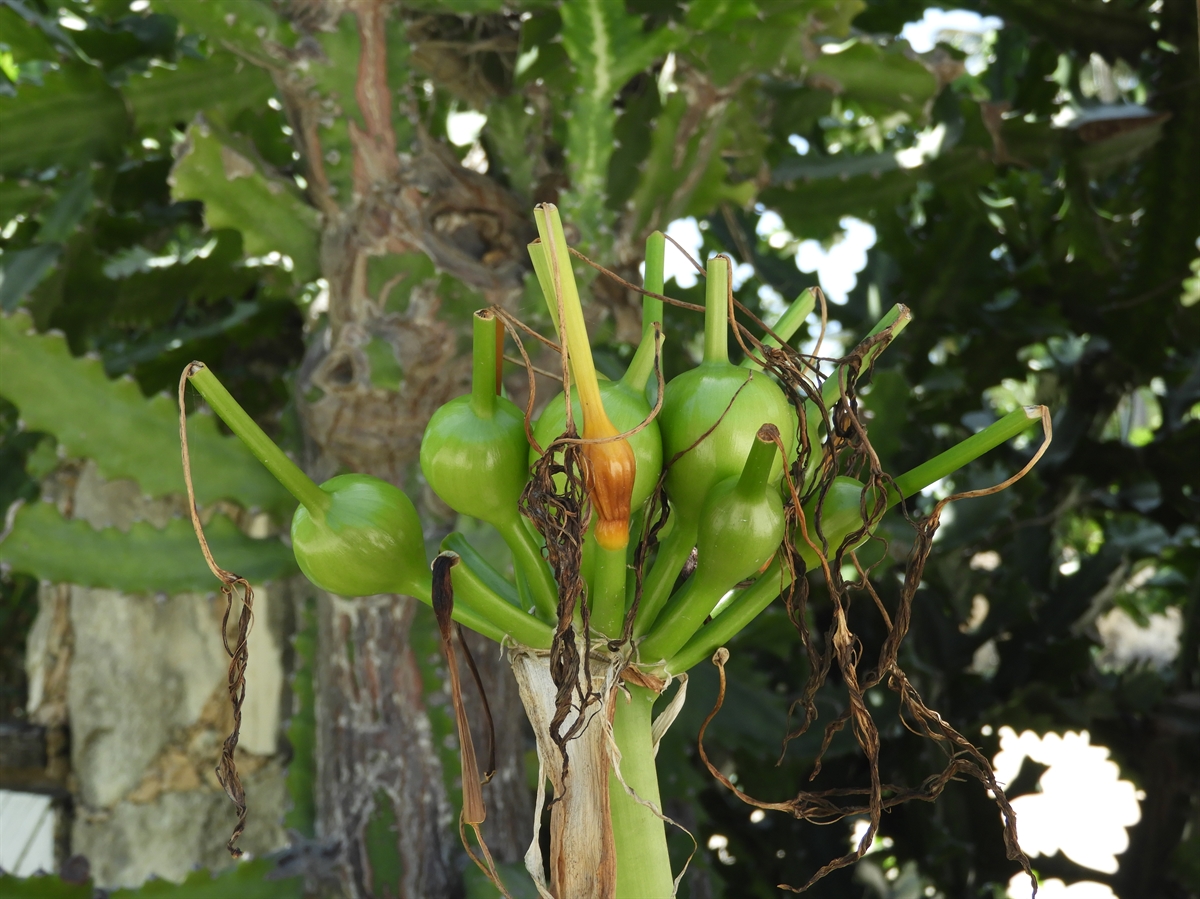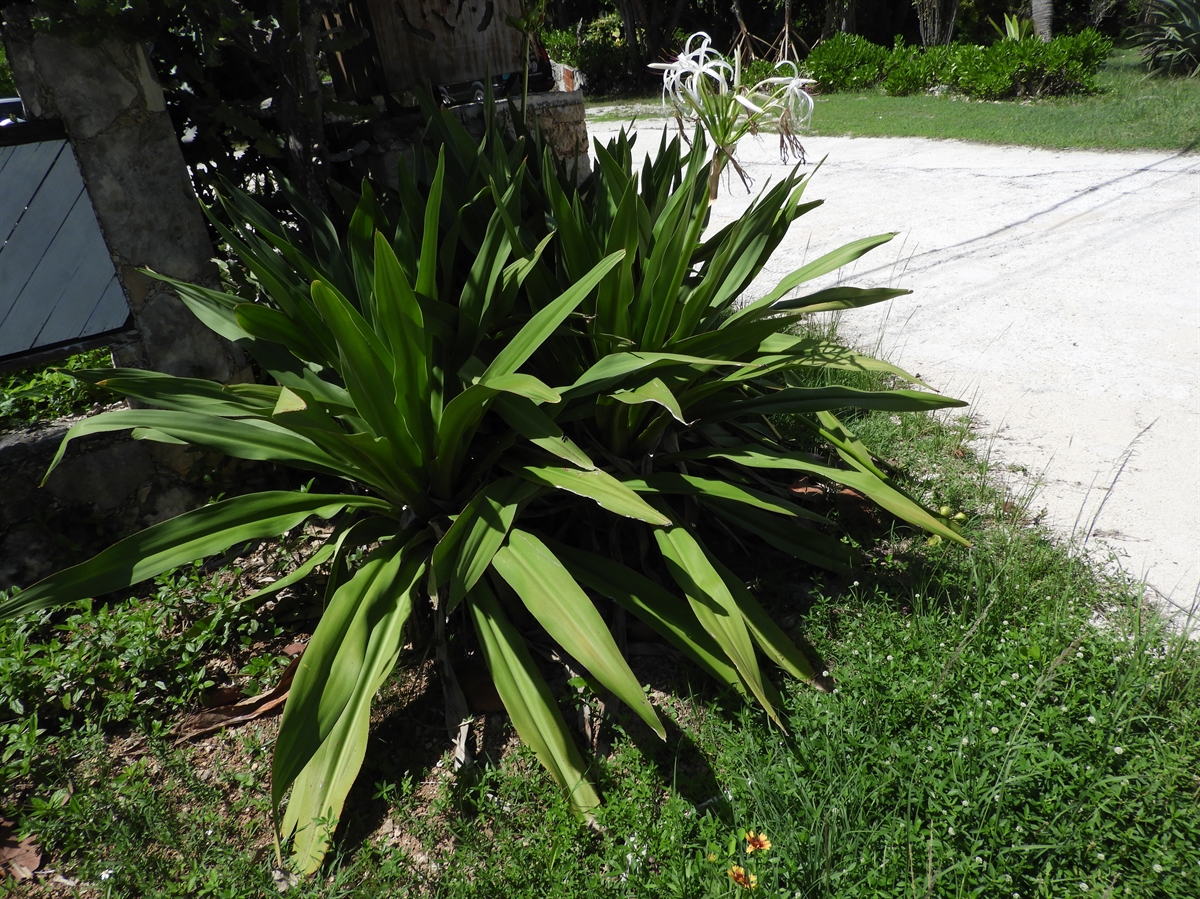Habit: Crinum asiaticum is a perennial herb that produces a basal rosette of linear leaves from a fleshy underground bulb. The leaves are parallel veined, up to 15 cm wide and 1 m long with an acute/acuminate leaf apex.
The complete, perfect, actinomorphic flowers are arranged in an umbel bearing up to 20 sessile flowers. The calyx has 3 white sepals. The corolla has 3 white petals. The calyx and corolla are fused together at their base. There are 6 stamens partially fused to the perianth forming a tubular hypanthium. The ovary is inferior and has three locules containing multiple ovules each. The fruit is a capsule that is white at maturity.
Habitat: Crinum asiaticum grows in Human Altered environments (yards and gardens).
Distribution: Crinum asiaticum is NOT native to the Lucayan Archipelago. It is native to Southeast Asia, the Indian subcontinent and Australia. It is now grown throughout the Caribbean region, and subtropical North and Central America.
Medicinal/Cultural/Economic usage: Crinum asiaticum has been used medicinally in the Lucayan Archipelago for gastrointestinal issues and treating colds and flu.
Crinum asiaticum is commonly used in the horticultural industry especially for coastal areas in the southern United States and the Caribbean.


